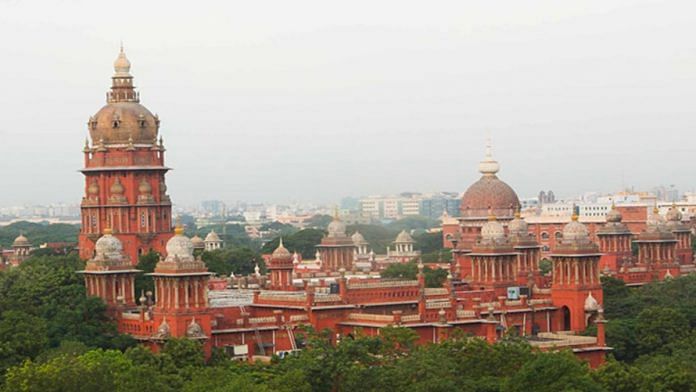
New Delhi: The Protection of Children from Sexual Offences (POCSO) Act 2012 was never intended to cover cases where adolescents or teenagers are involved in romantic relationships, the Madras High Court observed this week, suggesting that the law be amended to exclude such cases.
“Punishing an adolescent boy who enters into a relationship with a minor girl by treating him as an offender, was never the objective of the POCSO Act,” said Justice N. Anand Venkatesh while hearing a case Wednesday.
“An adolescent boy and girl who are in the grips of their hormones and biological changes and whose decision-making ability is yet to fully develop, should essentially receive the support and guidance of their parents and the society at large,” the court added.
It then suggested that POCSO be amended to take such cases into consideration, and observed: “An adolescent boy who is sent to prison in a case of this nature will be persecuted throughout his life. It is high time that the legislature takes into consideration cases of this nature involving adolescents involved in relationships and swiftly bring in necessary amendments under the Act.”
The court was hearing a petition filed by a woman and her daughter, seeking to quash the proceedings filed against the accused, Indhran. The woman was the complainant in the case filed under Section 366 (kidnapping, abducting or inducing woman to compel her marriage etc) of the Indian Penal Code, Section 6 (aggravated penetrative sexual assault) of the POCSO Act and Section 9 (punishment for male adult marrying a child) of the Prohibition of the Child Marriage Act.
The court has now noted that Indhran, who is in his early twenties, had asserted that it was the minor girl who insisted on eloping and getting married.
The court allowed the woman’s petition and quashed the criminal proceedings against Indhran, asserting that the case involved questions which are “purely individual/personal in nature”.
“Quashing the proceedings, will not affect any overriding public interest in this case and it will in fact pave way for the 2nd Petitioner and the 2nd Respondent (Indhran) to settle down in their life and look for better future prospects,” it observed.
Also read: Supreme Court stays Bombay HC’s ‘no skin touch, no sexual assault’ verdict in POCSO case
Similar ruling by another Madras HC justice
Another judge of the high court, Justice V. Pathiban, had issued a similar ruling in April 2019, suggesting exclusion of consensual sex after 16 years of age from the purview of POCSO Act.
The court had then recommended: “The Act can be amended to the effect that the age of the offender ought not to be more than five years or so than the consensual victim girl of 16 years or more. So that the impressionable age of the victim girl cannot be taken advantage of by a person who is much older and crossed the age of presumable infatuation or innocence.”
Justice Venkatesh took note of this order in his observations, and referred to the objective behind the POCSO Act. “The scheme of the Act clearly shows that it did not intend to bring within its scope or ambit, cases of the nature where adolescents or teenagers involved in romantic relationships are concerned.”
The court then noted that a large number of cases under POCSO Act seem to be filed by families of adolescents and teenagers who are involved in romantic relationships with each other.
It then suggested the law be amended, but clarified that the “court is not turning a blind eye to cases where the victim or survivor may, under the effect of trauma that they have undergone … might tend to reconcile with the same by blaming themselves or convincing themselves that the element of consent was in fact present”.
It asserted that this will depend on the facts and circumstances of each case.
Also read: Opening pant zip, holding child’s hand not sexual assault under POCSO, says Bombay HC

The judge is right. It is so nice to see a judge basing his judgement on a scientific fact. The frontal lobe is the manager of the brain and gives you the ability to judge and decide before taking any action. The frontal lobe is not fully developed till the age of 23. Till then you are under the influence of the hormones.
a very sane observation by the judge. we need more of him.